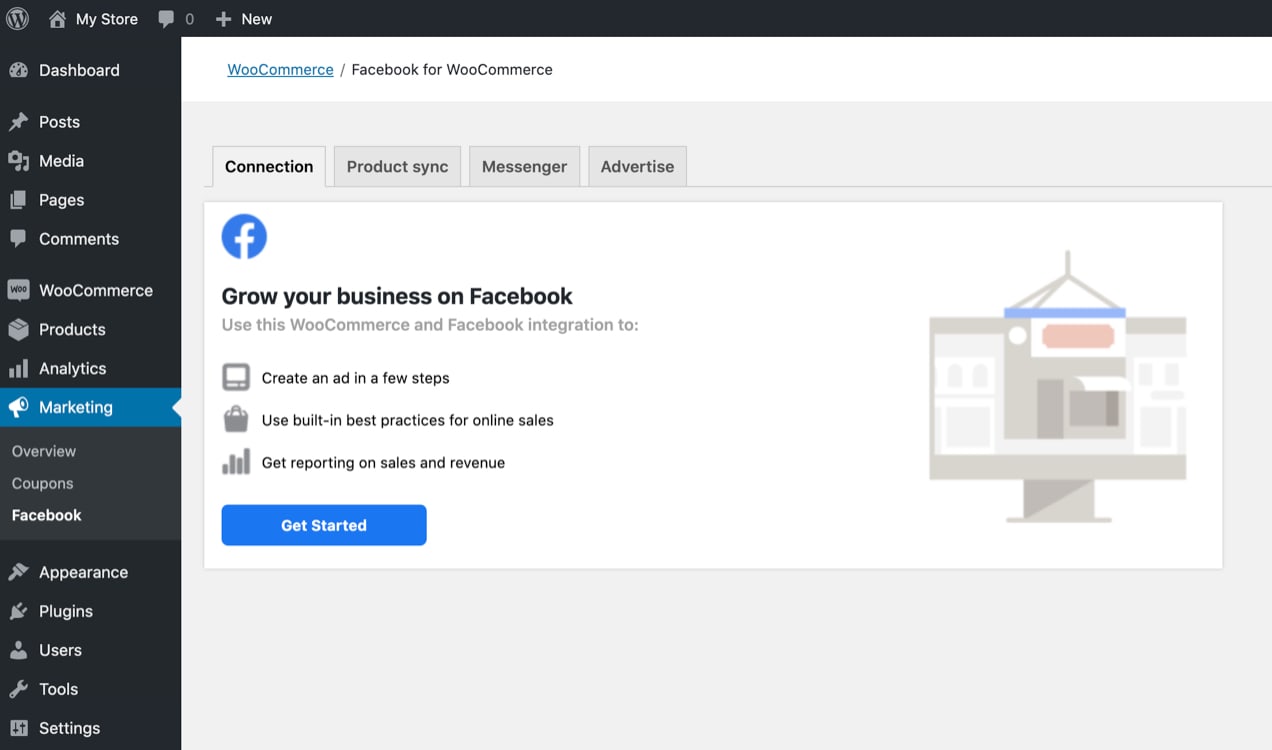The advertising industry is changing in ways that will affect all businesses who rely on an ad-supported internet to grow. Consumers want transparency and control over how their data is used and companies are working to better protect consumer privacy. Personalization and privacy are often presented as two concepts at odds with one another when it comes to digital advertising. But that isn’t the case — personalized ads and user privacy can coexist.
The demand for greater privacy is driving new government regulations and transforming technology platforms. Businesses must innovate their data practices to meet people’s expectations around relevancy and privacy, while maintaining effective marketing and measurement. Conversions API is a new tool from Facebook that supports advertisers’ efforts to provide consumers with data transparency and control while also helping them to continue offering personal experiences to customers. The good news for WooCommerce merchants is that it’s easier than ever to implement Conversions API.
The ads ecosystem is rapidly evolving
↑ Revenir en hautIn an effort to meet consumer expectations, governments are implementing new regulations and companies are evolving their policies to put control in the hands of people. In some cases, those policies have impacted long-standing advertising mechanisms. In 2018, the European Union (EU) implemented General Data Protection Regulation (GDPR), to give individuals control over their personal data. It also addressed the transfer of that data beyond the borders of the EU.
The use of third-party cookies is a great example of companies taking a proactive approach to consumer privacy. Third-party cookies are snippets of code that enable measurement of customer activity. Advertisers use this data to make relevant offers to consumers. Some web browsers already block third-party cookies and most other browsers will soon do the same. Advertisers’ retargeting and personalization strategies could be affected by this.
Personalized advertising in a privacy-first world
↑ Revenir en haut
People value highly personalized experiences. According to a 2018 study by Accenture Interactive1, 91 percent of consumers say they’re more likely to shop with brands who “recognize, remember, and provide them with relevant offers and recommendations.” But while people value personalized experiences, they also want more privacy. Almost 97 percent of respondents to a 2019 Tealium Consumer Data Privacy Report2 survey were somewhat or very concerned about protecting their personal information.
We know that data-driven marketing is effective and brings value to people by connecting them to products and experiences they love. Because of data, companies can reach people with the right message at the right time in their journey, from the moment they first discover a product or service to the time they make a purchase.
But personalized advertising doesn’t need to be at odds with people’s privacy. If businesses take the right steps to adapt their digital strategy, they can offer personalization to customers while reliably sharing data with Facebook.
That’s where Conversions API can make the difference. Conversions API is designed to help advertisers drive the outcomes they want using information and data they control, such as their customers’ interactions with their sites, products, and services.
How does Conversions API work?
↑ Revenir en hautConversions API allows advertisers to share data directly from their server rather than through a browser.
Facebook encourages advertisers to implement Conversions API in addition to Pixel for full-funnel visibility and to strengthen how their business shares data with Facebook. Advertisers can pass a wider array of data to inform their advertising than is currently captured by the Facebook Pixel, such as CRM data or lower-funnel events, and Conversions API is designed to be less susceptible to issues like browser crashes or connectivity problems. Industries with heightened security needs can also use Conversions API as a standalone tool to better control what data they share and when they share it.
How do Conversions API and Pixel work together?
↑ Revenir en hautPixel and Conversions API work in concert; it’s important that advertisers implement Conversions API in addition to Pixel. With the Facebook for WooCommerce plugin, the same data that flows through Conversions API and the Facebook Pixel is deduplicated based on a unique event ID, so there’s no concern about the same events being double counted. Additionally, with Conversions API, advertisers can use a wider array of data to inform their advertising than is currently captured by Pixel. This results in greater insight into the people who matter to your business.
How can I implement Conversions API?
↑ Revenir en hautAs a WooCommerce merchant, you can easily implement Conversions API and optimize and fortify your data for the future. It just takes a few clicks when you update to the latest Facebook for WooCommerce plugin. Setting up Conversions API will ensure you can measure customer actions in more ways, improve the accuracy of events sent for measurement and optimization, and control the data you share.

- Navigate to the Plugins menu, click Add New, and locate the Facebook for WooCommerce plugin. Install the plugin, then click Activate.
- Go to Marketing → Facebook and click Get Started.
- Click Continue and confirm your settings.
- Authorize your WooCommerce integration with Facebook by selecting Manage your business.
- And you’re done! Congratulations, you’ve updated your Facebook for WooCommerce integration and now enjoy all the benefits of Conversions API.
If businesses can’t evolve, people may face a digital world dominated once again by less personalized and potentially disruptive ads. Not only does this create a poor experience, it may increase costs for advertisers. Again, personalized advertising doesn’t need to be at odds with people’s privacy. Businesses can take steps to act with user privacy in mind and maintain performance of the digital advertising ecosystem by installing the latest version of the Facebook for WooCommerce plugin today.
1. Accenture, Personalization Pulse Check, 2018
2. Tealium, 2019 Tealium Consumer Data Privacy Report, 2019
About



